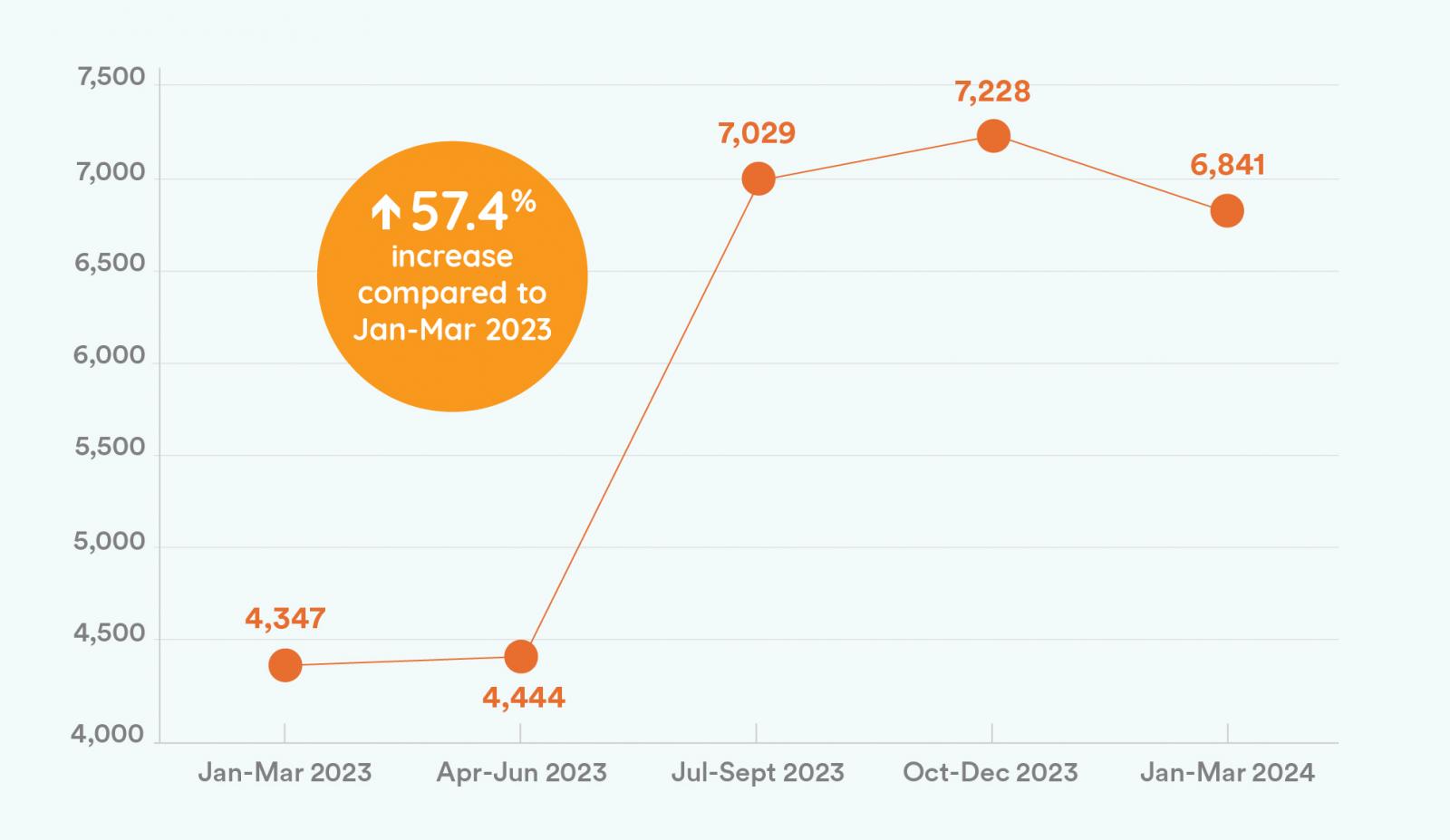Small businesses face high prices but have fewer consumer protections
In our November 2021 report, Spotlight On – Consumer and small business energy debt solutions, we explored the gaps in small business affordability protections. These gaps became obvious when temporary additional COVID-19 protections lifted in October 2021.
In the years since, affordability pressures have only increased for households and small businesses – with steep rises in the cost of living, interest rates, rents and energy prices. In November 2023, Energy Consumers Australia (ECA) released its research report Power over their Power: Small Business Perspectives on Energy, which found that one of the major barriers to small businesses effectively managing their energy is the soaring costs of doing business.
The impact of these financial pressures on small businesses is evident in Australian Securities & Investments Commission (ASIC) annual corporate insolvency statistics. The most recent statistics, published in December 2023, showed that insolvencies increased 33% from 4,064 in 2021-22 to 5,440 in 2022-23. These statistics also show that most corporate insolvencies are small to medium businesses. For example, 87% of insolvencies in the 2022-23 financial year were for businesses with fewer than 20 employees.
We are also seeing focus turn towards the need to consider which consumer protections should apply for small businesses. In May 2023, the Australian Market Energy Commission (AEMC) introduced new rules which placed obligations on energy retailers to support customers impacted by family violence. In the initial consultation stage, the new rules were not proposed to apply to small business customers. However, the AEMC’s final rule determination extended the protections to small business customers following feedback provided throughout consultation with stakeholders including EWON, the Australian Energy Regulator (AER) and the Public Interest Advocacy Centre (PIAC). This demonstrates the importance of considering suitable protections for small businesses alongside protections for households.
The case study below shows how small businesses can find it difficult to navigate financial difficulties under the current consumer framework. As detailed in our Spotlight On, many of the affordability protections that apply to households do not apply to small businesses, including obligations around offering payment arrangements.
Case studies
 Small family business at risk of disconnection
Small family business at risk of disconnection
A technician attended the customer’s business in February 2024 to disconnect the electricity supply for non-payment. The technician left without disconnecting the business to give the customer time to contact her retailer. She contacted the retailer, but it would not cancel the disconnection unless it received full payment of the outstanding balance.
The customer could not afford full payment so contacted EWON for assistance. She advised that she owned the small family food service business with three employees. She was having a difficult time due to a close family member’s illness. She said that she could afford to pay the amount owing if she could have a short extension and then pay in two instalments, but the retailer had declined to accept this arrangement or a similar compromise.
We spoke to the retailer and it said the customer’s last payment was $1,600 in November 2023 and the balance owing was $3,100. The retailer said it does generally try to take people’s circumstances into account and consider payment arrangements, however, it takes a harder line for small businesses once there is an imminent disconnection.
After discussions with EWON, the retailer agreed to cancel the disconnection based on the customer’s offer to pay $1,500 in a few days, and the remaining $1,600 a week later. The customer was happy with the outcome and confirmed she understood she may be at risk of disconnection again if she did not stick to the agreed payment arrangement. The customer advised she was going to shop around for a new retailer.




